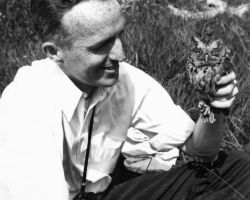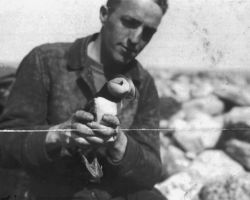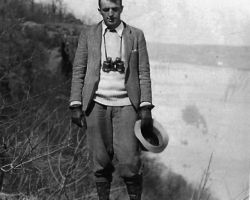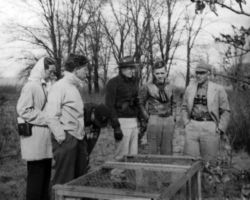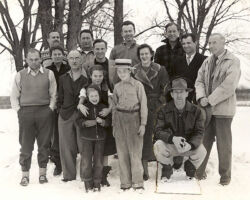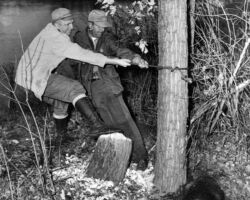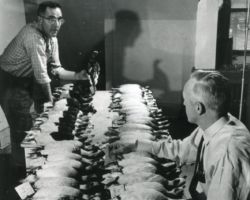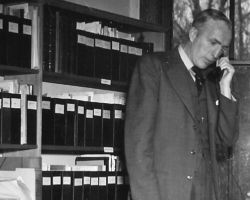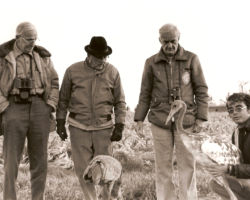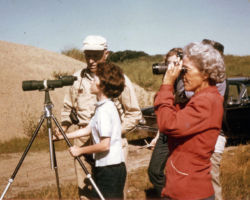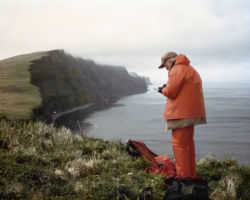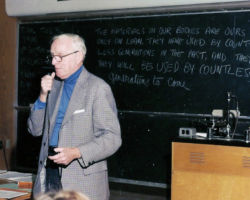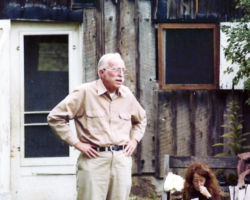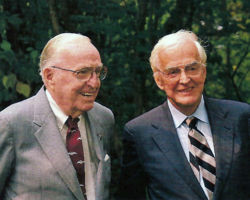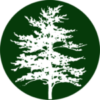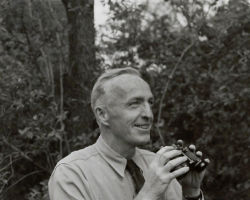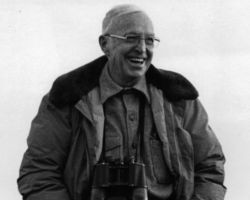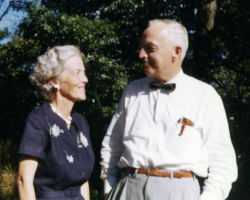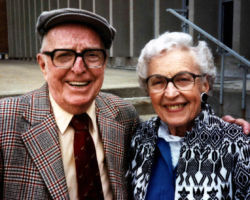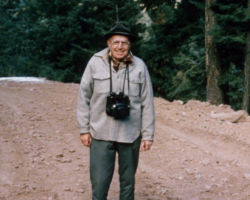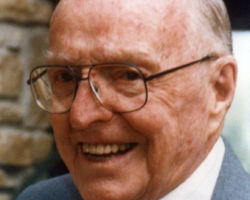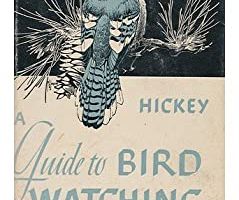1907 – 1993
Inducted 2002
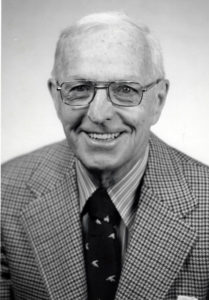 “Conservation means more than preserving a few species of wildlife. It means the wise use of all the natural wealth of a great continent so that other generations of Americans can benefit by its resources and enjoy the same opportunities that we do today.” – Joseph Hickey
“Conservation means more than preserving a few species of wildlife. It means the wise use of all the natural wealth of a great continent so that other generations of Americans can benefit by its resources and enjoy the same opportunities that we do today.” – Joseph Hickey
Joseph J. Hickey was a kid from the South Bronx who made his mark in conservation here in Wisconsin. Almost from the moment he arrived in the state in late 1941, Hickey would play a key role on conservation issues and environmental matters here. Leopold had recruited Hickey to join him in 1948 as the second faculty member in his department at UW-Madison. One of his first contributions was to help organize efforts to have “A Sand County Almanac” published in 1949, the year after Aldo Leopold’s (WCHF Inductee) death.
Among his many conservation contributions, Hickey played an important role in helping to unravel the connection between declines in bird populations and the effects of chlorinated hydrocarbon pesticides such as DDT. Hickey’s research on the ecological effects of DDT was pivotal in the eventual ban of the pesticide, first in Wisconsin, then in the United States. There was a cost for being an outspoken critic of popular agriculture. “As a professor in the country’s largest college of agriculture, Joe was severely censured by spiteful college administrators.” Environmental groups, however, embraced him and frequently recognized his contributions with awards and citations.
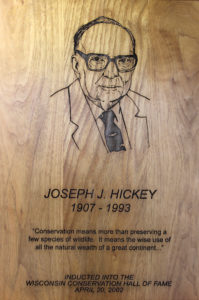 It all started with birds for Hickey. As a teenager, he joined the Bronx County Bird Club in New York. Also in the club were a couple of Hickey’s lifelong friends: Roger Tory Peterson and Allan Cruickshank. Another birding colleague, biologist Ernst Mayr, encouraged Joe to become more scientific in his pursuit of birds. Hickey followed the advice, returned to night school at NYU and resumed undergraduate studies, in biology. He earned his master’s degree under Aldo Leopold at UW-Madison. For his master’s thesis, Hickey wrote “A Guide to Bird Watching.” The book was published immediately by Oxford University Press and is still in print. Rather than a field guide, it is an instructional manual for citizen scientist’s who want to pursue various aspects of birding, from banding to life history studies.
It all started with birds for Hickey. As a teenager, he joined the Bronx County Bird Club in New York. Also in the club were a couple of Hickey’s lifelong friends: Roger Tory Peterson and Allan Cruickshank. Another birding colleague, biologist Ernst Mayr, encouraged Joe to become more scientific in his pursuit of birds. Hickey followed the advice, returned to night school at NYU and resumed undergraduate studies, in biology. He earned his master’s degree under Aldo Leopold at UW-Madison. For his master’s thesis, Hickey wrote “A Guide to Bird Watching.” The book was published immediately by Oxford University Press and is still in print. Rather than a field guide, it is an instructional manual for citizen scientist’s who want to pursue various aspects of birding, from banding to life history studies.
Hickey earned a Guggenheim Fellowship to and a doctorate at the University of Michigan. His thesis project involved analyzing what has been described as “a virtually unexploited gold mine of bird-banding data accumulated by the U.S. Fish and Wildlife Service.” His dissertation, “Survival Studies of Banded Birds,” was published by the U.S. Fish and Wildlife Service in 1952 and reprinted in 1972.
Leopold invited him to return to the University of Wisconsin-Madison to become second professor in the university’s Department of Wildlife Management. In April 1948, Leopold died just months after Hickey took up the position, leaving him as the department’s sole faculty member and Leopold’s successor. It was then that he contributed to the “A Sand County Almanac” project, culminating in its 1949 publishing. Hickey was also an acclaimed teacher at UW-Madison and was recognized by many state and national conservation organizations for his contributions.
Resources
Joseph Hickey: Distinguised Ornithologist, for UW-Madison Alumni Park
In Memorium from The Auk, 1994
A Champion for the Birds, article by Cindy Foss for OnWisconsin magazine, 2021
UW–Madison Professor Led Fight to Ban Pesticide DDT 45 Years Ago, article by Todd Pritchard for UW News, 2017
Stan Temple speaks about the legacy of Joe Hickey for the 2015 Raptor Research Conference
Joe Hickey’s Last Lecture, story by Susi Hickey Nehls for Buteo Books, 2009
Joe Hickey the Scientist: A Story of Discovery, article by Daniel W. Anderson, 2005
Lorrie Otto (WCHF Inductee) letter of support for Joseph Hickey, 2000
Dr. Hickey’s Advice: A Former Student Remembers, article by Eduardo Santana C. for Wisconsin Academy Review, 1994
Readings from the Memorial Service for Joe Hickey, 1993
Joseph Hickey letter of support for Wallace Grange (WCHF Inductee) nomination, 1991
The Bronx Age, article by Julie G. Ridl for Birder’s World, 1989
Joseph Hickey Acceptance Speech for the Audubon Medal, 1984
Joe Hickey, Birder, article by Michael Harwood for Defenders, 1982
A-Birding in the Bronx, article by Frank Graham Jr. for Audubon Magazine, 1982
J. J. Hickey Career Narrative, transcript by Frederick Greely, 1978
Soda Lake, article and image for SpaN, 1978
Third Person Memior of Joseph Hickey, 1977
Erosion Problems on Sheep Farms in Southwestern Wisconsin by Joseph Hickey and Aldo Leopold, 1943
Letters to Joseph Hickey from Aldo Leopold, 1941
Photos
